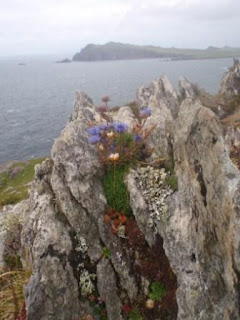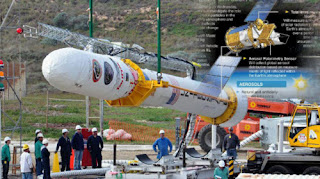A roly poly died in class this week. That in itself is not unusual. This particular roly poly, however, lived in a terrarium maintained by two students. No rock fell on it. It had food and water. Unless we get an autopsy, it will go down as an "up and died." It was found in the classic dead bug position, even though, technically, it was a crustacean.
The two young women who maintained the tank were upset, but once I assured them that the roly poly died of old age, they were fine. "Old age" is foreign to the young, as it should be. Besides, I made that up. Nothing dies of old age. Nothing.
***
I am meeting with the governor on Tuesday. I hope it goes well, and I hope he uses his office to promote education, but I know we will not be talking about dead roly polies.
School should be a dangerous place, with dangerous ideas. The young should be pushing us. My students were mere embryos in 1996.
They were born in a world of incomprehensibly destructive weapons. In a culture that values words and contracts over life. In a world defined by systems and machines,
That they do not run out of the building screaming by 11 A.M. shows how much they trust us.
So we'll dither about merit based pay, and education reform, and what education means to democracy, but we won't talk about dead roly polies.
***
I have a dozen or so clams in my belly now, critters that were alive 3 or 4 hours ago. They were delicious, and nutritious. They're now dead.
That's the way it works.
We all die, of course, and we mostly ignore this. We eat to live. I eat the clams, they eat plankton. Most of the clams I raked up today were less than a decade old. I have no idea what clams know, and they have no idea what I know. They know enough to try to escape when I rake. Most living things, conscious or not, make every effort to stay alive.
And if we want to stay alive, and if we do not have chloroplasts, we need to eat other organisms. "Eat," a simple 3 letter word, one we do not ruminate over much, means this: taking into your body the once living body of another, in order that you can keep living.
The alternative is premature death.
***
Peter Singer, an ethicist, waivers on whether eating clams is OK. He seems to think it depends on whether they have interests:
[T]he only legitimate boundary to our concern for the interests of other beings is the point at which it is no longer accurate to say that the other being has interests. To have interests...a being must be capable of suffering or experiencing pleasure. If a being suffers, there can be no moral justification for disregarding that suffering, or for refusing to count it equally with the like suffering of any other being. But the converse of this is also true. If a being is not capable of suffering, or of enjoyment, there is nothing to take into account.
This is an interesting issue. We could spend weeks in class discussing it. But we won't, not if I want to keep my position.
I doubt a single child in my class worried about the well being of a roly poly before coming into Room B362. I can take no credit for their newfound concern beyond bringing in a few roly polies. Just about all living organisms are more interesting (and complicated) than we know, until we bother to get acquainted with them.
Every organism alive on Earth today has been evolving for the same amount of time. We are not special. And we will die, too.
So I bring a few in, so my lambs can watch them. And they do pretty much what we do. Wander around, eat, drink, socialize, reproduce, and die.
No one knows the why. No one.
***
I teach biology, the study of life. To study life, you need to grasp how we stay alive, which means you need to have a handle on death.
We spend a lot of time talking about meiosis, about biomes, about transcription and translation, about DNA. "Death", however, is not in the New Jersey curriculum standards, except when referring to stars. "Love" is not in the NJCCCS. Nor is "global warming," nor "nuclear warfare."
So what matters?
***
I slaughtered, deliberately, 27 clams tonight. I slaughtered many more organisms while raking for those clams, even more while driving to my sekrit clamming bed.
I can (reasonably) expect to die within the next 20 or 30 years, though I would beat my family average should I live so long.
 |
| Walt Kelly got this. He was one of my best teachers ever, and I only knew him through Pogo |
Microsoft will outlive me. So will Cisco and GM and the US Federal Government, all fabled institutions, all protected by law. I either matter, or I don't. I'm too old to worry about that anymore, so long as i get my clams and my books and my beer, but it's a worthwhile (and interesting) question for my lambs.
Every family in my town pays a huge amount of taxes ts support our local school system. I am thankful that they do. The least I can do is teach things that matter.
If I tell my townfolks I teach about meiosis, and polymerase chain reactions, and other forms of modern nonsense, well, many would believe they're getting their money's worth, and maybe they are.
If I told them that their children were studying roly polies, I am not sure I'd get the same reception. Governor Christie could destroy me with that.
Still, death matters. A lot. Maybe not if you're a corporation, and maybe not if you're a clam, but it does if you're a child.
Imagine what we could do if each and every one of us recognized our own finiteness.
The bluefish and the clam shown were both delicious.
The Pogo cartoon used with permission--that I had contact with anyone in the Kelly family made this blog worthwhile.
The photos are ours.














































